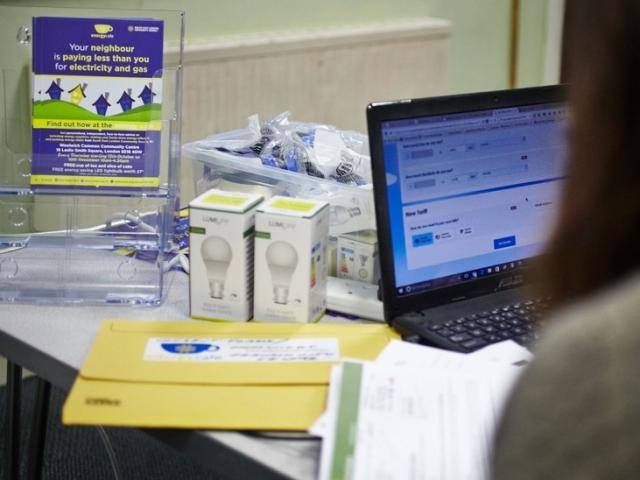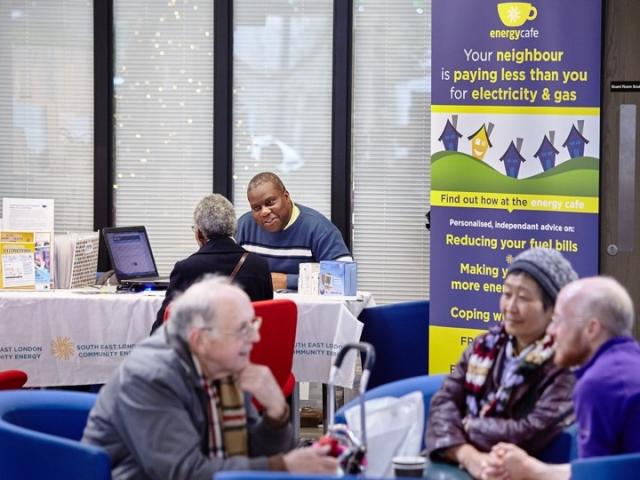Martiskainen, M. (2020). The Energy Café - community action on energy poverty in the United Kingdom. EP-pedia, ENGAGER COST Action.
Perspective on The Energy Café - community action on energy poverty
Energy poverty is a well-established topic in policy circles in the UK (usually addressed as fuel poverty), with a long policy history going back over 25 years to the early work by Professor Brenda Boardman (e.g. Boardman, 2010.) While there have been several government programmes addressing energy poverty over the years, the problem nevertheless persists and over 4.5 million households in the UK still struggle with energy poverty. Energy poverty, or fuel poverty in the UK, has mainly been addressed as an issue of high energy bills and people struggling to pay bills due to cold and energy inefficient homes. The health implications of energy poverty in the UK are well established, and there have been trials such as doctors prescribing energy measures such as improved heating equipment to patients (Millett, 2016). Nevertheless, energy poverty persists, partly due to old housing stock, partly due to increases in energy bills, and partly due to low incomes. The UK government’s austerity politics during 2010 to 2019 have not helped, and neither has the COVID-19 pandemic. Each winter people in the UK still die of energy poverty related causes. A recent study reported a 5-year average of 32,000 excess winter deaths in the UK, of which 9,700 were related to living in a cold home (Guertler and Smith, 2018). The latest Office for National Statistics (ONS) report shows that for 2019-2020, there were 28,300 excess winter deaths in England and Wales (this excludes Scotland and Northern Ireland, and COVID-19 deaths), up by 19.6% compared to winter 2018-2019 (ONS 2021).
While the concept of providing people energy advice is not new, doing it in a café setting was largely introduced in the mid-2010s. Energy Café ideas were first developed by community organisations working at grassroots level in the UK, though there is not exact data on start dates (see Martiskainen and Speciale, 2016). The concept of an Energy Café has not yet reached wide policy awareness, even though some Members of the Parliament have mentioned the work of community groups in parliamentary sessions. Energy Cafés are typically run by community organisations and staffed by volunteers who provide advice about energy issues to the public, but especially targeting those facing energy poverty. Community organisations such as South East London Community Energy (SELCE) and Brighton and Hove Energy Services Co-operative (BHESCo) are examples of community groups who have developed and run such initiatives.
Energy Cafés have three key ingredients: a welcoming atmosphere, offer of tea & cake, and trusted advice. Such initiatives have been located in varying places, including town centre shops, cafés, city farms, community centres and village greens, with a range of publicity and marketing tools used to attract visitors. Many community groups rely on grant funding, so the choice of location usually depends on the level of funding and resources. Such initiatives are also often staffed by volunteers. The stop-start nature of funding can be a risk to the longevity of Energy Cafés. These initiatives provide a service that energy companies used to provide, e.g. advice offered in a physical location, since most energy companies no longer have high street shops but rely instead on phone lines. Key aims of Energy Cafés are to demystify energy bills, and to promote energy efficiency, behaviour change and renewable energy. Some Energy Cafés also refer visitors to other services such as housing or health services, and they can also arrange home visits. Identifying those in need of advice can be very difficult also for groups running Energy Cafés.
Energy Cafés operate in the grassroots, local, level action of energy poverty alleviation; likely there is more awareness of them in specific locations where such cafés are run. They are not, however, a national government policy.
Research perspective
The University of Sussex together with SELCE produced the first piece of research on Energy Cafés in the UK in 2016, publishing different key outputs, such as a report to the funding organisation (Martiskainen and Speciale 2016); policy briefing (Martiskainen et al. 2017); and one academic journal article (Martiskainen et al. 2018).



Source: South East London Community Energy
Boardman, B., 2010. Fixing Fuel Poverty, Challenges and Solutions. Earthscan, London.
ONS 2021. Excess winter mortality in England and Wales: 2019 to 2020 (provisional) and 2018 to 2019 (final). Office for National Statistics. https://www.ons.gov.uk/peoplepopulationandcommunity/birthsdeathsandmarriages/deaths/bulletins/excesswintermortalityinenglandandwales/2019to2020provisionaland2018to2019final [Accessed 04.02.2021].
Guertler, P. And Smith, P. 2018. Cold Homes and Excess Winter Deaths. A Preventable Public Health Epidemic that Can No Longer Be Tolerated. E3G and National Energy Action (NEA). http://www.nea.org.uk/wp-content/uploads/2018/02/E3G-NEA-Cold-homes-and-excess-winter-deaths.pdf [Accessed 20.06.2020].
Martiskainen, M., Speciale, G., (2016). ‘The Fuel Bill Drop Shop’: an investigation into community action on fuel poverty. Final report to Chesshire Lehmann Fund, April 2016. Centre on Innovation and Energy Demand, Sussex Energy Group, SPRU, University of Sussex and South East London Community Energy. http://tinyurl.com/huxverc [Accessed 20.06.2020]
Martiskainen, M., Speciale, G. and Bird, J. (2017) Alleviating fuel poverty: the role of the energy café, CIED Policy Briefing, November 2017. http://www.cied.ac.uk/publication/alleviating-fuel-poverty-role-energy-cafe/ [Accessed 20.06.2020].
Martiskainen, M., Heiskanen, E. and Speciale, G. (2018). Community energy initiatives to alleviate fuel poverty: the material politics of Energy Cafés. Local Environment, 23, 20-35. http://www.tandfonline.com/doi/full/10.1080/13549839.2017.1382459 [Accessed 20.06.2020].
Millett, D. (2016). GPs cut COPD appointments 60% through 'boilers on prescription' scheme. GPonline 16 March 2016. https://www.gponline.com/gps-cut-copd-appointments-60-boilers-prescription-scheme/respiratory-system/respiratory-system/article/1387621 [Accessed 20.06.2020].

